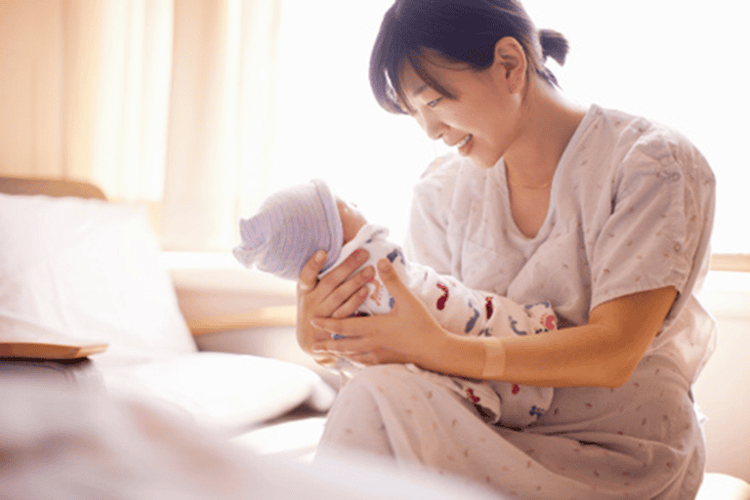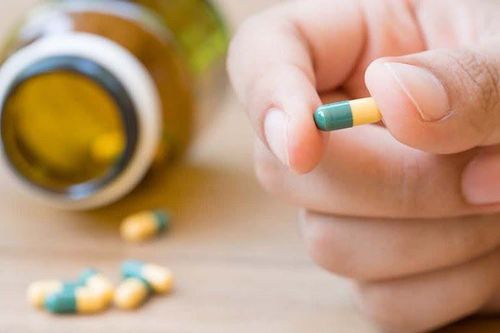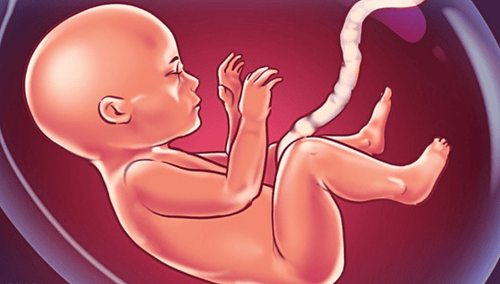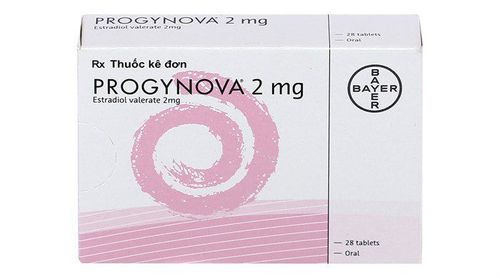Urinary retention is a very common condition in postpartum women. It causes discomfort and affects daily activities for sufferers. Although it is a common condition, many people still do not know if urinary retention after childbirth is dangerous.
1. What is postpartum urinary retention?
Postpartum urinary retention is a urinary tract disorder after giving birth. This is a condition in which the patient loses the ability to empty the bladder when it is full, so they often feel the urge to urinate but cannot do so. Currently, about 13.5% of postpartum women have urinary retention.
2. Is postpartum urinary retention dangerous?
Postpartum urinary retention is a very common condition. It is not dangerous but causes discomfort in movement and sensation. Therefore, this condition has significant effects on the daily life of mothers.
3. Clinical manifestations of postpartum urinary retention
Clinical manifestations of postpartum urinary retention are that mothers 3-4 hours after giving birth have the need to urinate but cannot do so. When examined by a doctor, the abdomen may be soft, and the area below the navel has a well-contracted uterus and a distended bladder. When pressed, there is a feeling of tension.
In addition, after being instructed to practice urination using many methods such as: sitting in a natural position, applying warm compresses and turning on the faucet to let the water flow slowly, the mothers still cannot urinate on their own, the feeling of tension and discomfort increases, then it is necessary to immediately notify the doctor for intervention and treatment.

4. Causes of postpartum urinary retention
The causes of postpartum urinary retention are as follows:
4.1. For women who give birth naturally
During labor, the fetal head drops low, pressing on the bladder neck or urethra, causing urine to stagnate, and the bladder to stretch. When overstretched, it will lose tone and cause the bladder neck muscles to contract.
Another cause of postpartum urinary retention is that in many cases, an episiotomy must be performed during delivery to help the fetal head come out more easily. After the incision is sutured, the wound will swell, so the mother feels pain and does not dare to strain when urinating. Straining to urinate will stretch the incision, making the pain worse.
When a mother has prolonged urinary retention, a catheterization procedure will be performed. This procedure, if performed many times, can cause cystitis, which is why the symptoms of urinary retention become increasingly severe.
4.2. For women have had a cesarean section
Women who have had a cesarean section are usually injected with anesthetic before the cesarean section. After the procedure, the anesthetic remains and it takes 8 hours for the effect to wear off. Therefore, the mother needs to wait for the anesthetic to wear off before she can urinate again.
During the cesarean section,bladder injury may occur. This leads to bladder paralysis and urinary retention after birth.
In addition, postpartum urinary retention can occur due to damage to the pelvic nerves during birth.
The risk of urinary retention increases when:
- First child is born
- Prolonged labor
- Assisted birth with instruments such as forceps, vacuums, etc.
- Urinary tract infection or previous history of urinary disease
5. Treatment of postpartum urinary retention
8 hours after birth, if the mother still cannot urinate, the urinary catheter may need to be reinserted.
5.1. Treatment principles
- Practice urination.
- Use antibiotics to prevent infection.
- Use anti-inflammatory drugs to prevent swelling that causes bladder neck compression.
- Use measures to support bladder tone to help bladder contractility return to normal.

5.2. Treatment process
Practice urination: train the patient to urinate in a natural position. In women with perineal sutures, it is necessary to avoid holding urine due to pain.
Urinary catheterization: if non-invasive measures fail, a urinary catheter should be placed and left in place for 24 hours. Remove the clamp every 3-4 hours and stimulate the micturition reflex. Each time the clamp is removed, the mother must practice pushing to urinate through the catheter. The catheter should be removed after the micturition reflex returns.
5.3. Use of drugs
- Give the patient antibiotics to prevent infection. Commonly prescribed drugs are cephalexin, typo, and augmentin.
- Give the patient anti-inflammatory drugs to prevent edema and pressure on the bladder and neck. Commonly used anti-inflammatory drugs include: alpha chymotrypsin, buscopan...
- Drugs that help increase bladder tone and contractility are commonly used: Prostigmin or Xatral.
- In addition, vitamins B1, B6 and B12 can be supplemented orally to improve the health of postpartum women.
- In addition to modern medical measures, postpartum urinary retention can be treated with traditional medical methods. Urinary retention is usually not treated with medication but can be treated with techniques such as acupuncture, and ear acupuncture... In addition, some medicines can be combined to increase the effectiveness of treatment.
6. How to prevent postpartum urinary retention
To prevent postpartum urinary retention, postpartum women need to pay attention to the following points:
- Mothers need to move around early after giving birth.
- Drink plenty of water.
- Do not hold urine due to pain in the perineum.
- Train postpartum women to urinate in a natural urination position.
- Keep the vulva clean and dry at all times.
- Have a complete and reasonable nutritional regimen for postpartum women.
Women should pay attention, after taking treatment measures the condition does not improve or if the pregnant woman feels pain or a burning sensation when urinating, she should go to a medical facility for examination, find the cause and get appropriate treatment.
Urinary retention after giving birth is not a rare condition and is not dangerous for the mother. However, this condition can cause inconveniences that affect the daily life of the mother.
To arrange an appointment, please call HOTLINE or make your reservation directly HERE. You may also download the MyVinmec app to schedule appointments faster and manage your reservations more conveniently.
To arrange an appointment, please call HOTLINE or make your reservation directly HERE. You may also download the MyVinmec app to schedule appointments faster and manage your reservations more conveniently.








